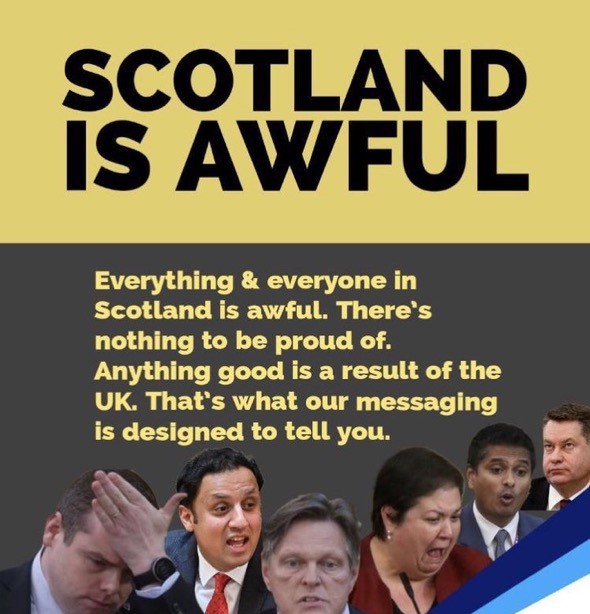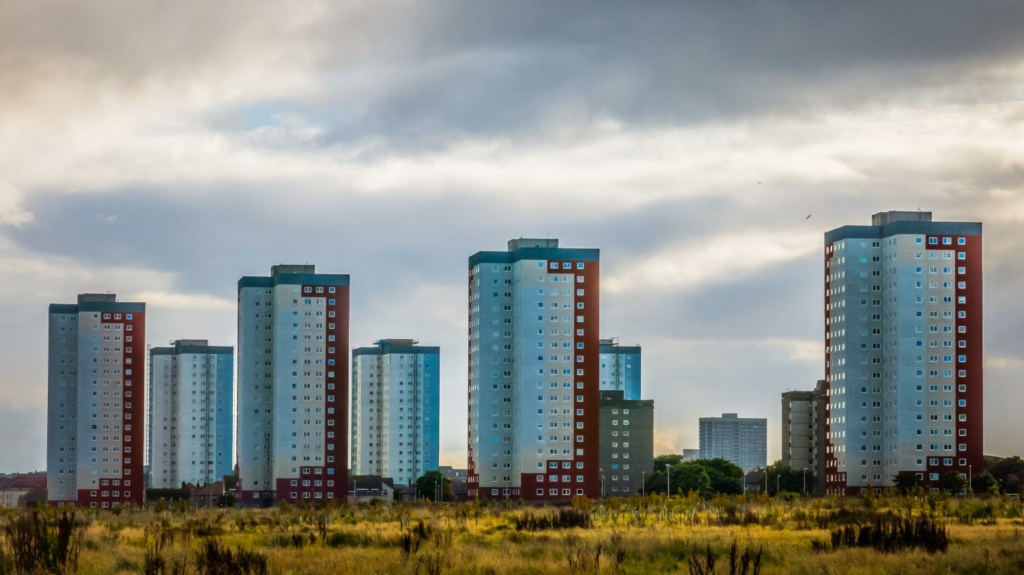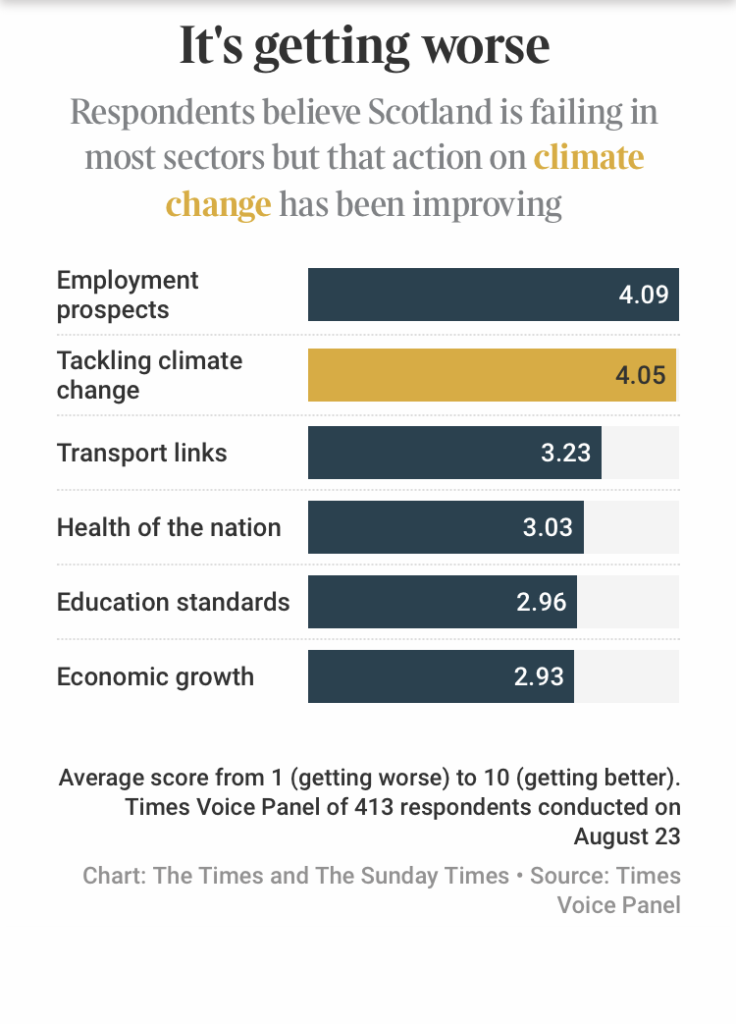Going Downhill


The Times (sort of) Scotland edition is having a great week. Here Magnus Linklater lauds Fergus Ewing and reading the room with the sort of shrewd knowing gaze that you’d expect denounces the Short Term Let legislation as another epic blow to Scotland. The entire tourism industry is going to collapse if regulated.
Poor Magnus is getting the jail: “I declare an interest: the estate of which I am a trustee has two holiday cottages that are rented out. Our form has yet to be completed. I may be about to join the criminal class.”
Linklater bundles this all in with “the deposit return scheme, banning whisky advertisements, creating marine areas” … The hysteria is relentless and the prospects for any change are denounced – here Iain Macwhirter moans of “losing the Barnett Formula subsidies”.
Compounding the misery the Times Scotland edition has published a wonderful piece declaring that ‘Scotland is going downhill in most areas’ . It’s unintentionally hilarious the Times has polled its own readers to confirm that, indeed, Scotland is awful in almost every regard.
The piece is illustrated with a wonderfully-bleak Soviet-style photo with the caption ‘The outlook appears gloomy for Scotland, according to Times readers’ …


Not only is everything shit, but things are getting worse.


Of course this sort of miserabilism is self-confirming and the Cringe is strong among The Times Scotland readers, but who are they and what is the purpose of this journalism?
I mean, politically the message is clear, the idea is to attack the SNP, which is fair enough if you are coming from the editorial stance of the Times. And a mirror to this sort of nihilism is the sort of ‘Everything is Awesome’ exceptionalism of some Scots. But it does beg the question, who is this for? What is the editorial drive of publishing a Scottish edition of your newspaper that just says – relentlessly – that the place you live is terrible in every respect, that every piece of legislation is dire and that every institution you encounter is dreadful?
What do they want to happen? Presumably they want the SNP to be run out of office, and for support for independence to collapse, but then what?

What! No mention of the oil and gas running out?
Keep it in the ground!
See also the ‘Sceptical Scot’ which appears to have resurrected itself from deserved oblivion solely for the purpose of wailing about how dreadful everything is.
Do these people have any positive prospectus to offer?
https://sceptical.scot/
Then what? Nothing. Job done. Useless Scotland would be back in it’s box, and ‘Times Voice Panel’ members (…can you imagine) would carry on living their lives in exactly the same way as they did before all this nasty independence business reared it’s ugly head. Huge and audible sighs of relief from Morningside to Bearsden .
Yeah Paul, I think your right. I suppose if you are comfortable then a state of complete inertia is kinda ok
I suppose what’s clear is there is no further hinterland, apart from occasionally pretending that there might be some kind of fumbling constitutional change – issuing the same paper about Federalism or something
I thought the rationale for independence was that everything about Scotland is currently sh*te and that the only way we can make it better is to have our own wee Westminster, Downing Street, and Whitehall in Holyrood, Bute House, and St Andrew’s House respectively.
How does this rationale square with the aggrievance that ‘Scotland’s no sae bad as some fowk are makkin oot.’?
Scotland is plagued with structural problems many of which stems from being tied to the British state. Scotland has a great many problems and much potential.
Indeed, the awfulness of which they speak is structural, and much of that is down to the current ‘establishment’ (the whole matrix of official and social relations within which power is exercised socially in Scotland). I doubt having our own wee bourgeois government in Edinburgh would be enough of a disruption of that establishment to cure the awfulness.
Depends if it was ‘our own wee bourgeois government’
Always someone making their tired wee statement about independence and the ‘bourgeoisie’. You really think aspiration is that low in the independence camp ? .
I know there’s a lot of aspirational, head-in-the-clouds idealism in the independence ‘camp’. But aspirational idealism does not a revolution make.
A bourgeois government, whatever its ideals, will only replicate in tartan the same ‘establishment’ (see above) that we have at present and which gives rise to the deep structural problems that makes contemporary Scotland as awful as people in both ‘camps’ say it is.
I know that many idealists in the independence ‘camp’ fantasise that, in the smaller pond of Scottish politics, they will have a better prospect of capturing the power of government and then using that power to impose their aspirational ideals, their particular will, on civil society generally.
But, realistically, that’s never going to happen, given the entrenchment of the existing establishment in the structures that are currently being instituted by the Scottish government in anticipation of its becoming independent of its UK parent government. An independent Scottish government will be securely in the pocket of the current establishment; the middle class of professionals, who are in control of the process of independence we’re already in, and their literary and political allies are making sure of that.
That’s the problem with aspirational idealism: it’s the opium of people who are being taken for a ride.
I think you’re right in part that a lot has to change about the embedded networks that are integral to much of contemporary Scotland, but I don’t share your ‘vision’ that nothing ever changes – nor that nothing can ever change
@230805
There is no argument with any of that except for the low opinion you seem to have of most of those supporting independence, your use of ‘aspirational’ to label folk as dumplings on opium and your rather smug ‘come the revolution’ non solution. There is nothing original or helpful in any of that. My impression is that folk are up for the changes necessary and that is the necessary starting point.
If the global hegemony of the West/capitalism/modernity is to be subverted, what the world needs is not positive, starry-eyed, aspirational idealism or an independent Scottish government, which merely reproduce its structures and perpetuate the West’s hegemony; what it needs rather is the sustained resistance of an immanent critique or deconstruction of its establishment in both word and deed, the negative dialectics of Critical Theory (or ‘Cultural Marxism’, as Suella Braverman and the alt-right call it).
All for subverting the ‘global hegemony of capitalist modernity’ but also would quite like to live in a country where we elect the government that rules us in the meantime. Being in support of the latter doesn’t preclude being in support of the former, otherwise you live your whole life ‘waiting for the revolution’.
But we do after a fashion elect the governments that rule us. The UK electorate collectively elects the UK parliament, from among whose members the Crown invites the leader of the party that’s best able to command a majority of our representatives in that parliament to lead the UK government, while the Scottish electorate collectively elects the Scottish parliament (and the Northern Irish and Welsh electorates theirs), from among which the Crown invites the leader of the party best able to command a majority of our representatives in that parliament to lead the Scottish government. When we were still citizens of the EU, as well as citizens of the UK and citizens of Scotland, we also, as part of the EU electorate, collectively elected a EU parliament, although it’s the unelected EU Council that collegiately appoint the governance of the EU. Basically, it’s all the same regime.
And basically, it’s the fact that the UK electorate elects the UK parliament collectively, rather than partially, along national lines, that you object to. The fact is that the UK electorate does (more or less) collectively get the government it indirectly votes for, just as the Scottish electorate does (more or less) collectively get the government it indirectly votes for. You can only argue that Scotland doesn’t get the UK government it indirectly votes for by confuting the two distinct but overlapping electorates. The Scottish electorate qua Scottish electorate doesn’t vote in UK elections.
And there’s no need to wait for world revolution. The polycrisis is already upon us. The global hegemony of the West/capitalism/modernity is deconstructing before our very eyes in world-catastrophic phenomena like the climate emergency. The petit-drama or soap-opera of Scottish independence is nothing but a parochial sideshow, a local Debordian ‘spectacle’ or Marxian ‘fetish’, that pales into insignificance in the context of this revolutionary moment in world history.
For one thing, Scotland has a system of proportionality in our election process. That is very different from the First Past the Post system operating in the UK and makes complete rule by any one group much more difficult.
Scotland also doesn’t have the weight of tens of millions of very-nicely-off-thankyou voters in the SE of England dragging us towards stasis. I have some confidence in the pretty-skint-and-pissed-off majority of Scots who may have an appetite for upsetting of the apple cart come independence.
Anyway, who really gives a f**ck about the details? Let’s have some change, some excitement, some hope, some ideas, something to get out of bed for.
Indeed, the UK parliament would do well to introduce proportionality into its electoral system to reduce the risk of tyranny (the complete rule of its decision-making by any one group).
I’m not so sure that Scottish politics doesn’t have its equivalent of ‘Middle England’, that ‘weight of tens of millions of very-nicely-off-thank-you’ conservative (with a small ‘c’) who drag us towards stasis and thereby maintain the established state of affairs. Surely, the independence movement has itself come up against the obstacle of ‘MIddle Scotland’ in its campaign to secure a majoritarian tyranny and use that tyranny to impose its political will on our society generally.
‘Anyway, who really gives a f**ck about the details?’
Precisely that ‘Middle Scotland’, whose silent majority maintains the status quo.
I quite like Wul’s ‘tude actually.
I think Middle Scotland really does exist (https://bellacaledonia.org.uk/2020/10/19/the-balerno-blueprint/) but I’m not sure it has the same strangle-hold on the country as the English equivalent, as perhaps the botched STL rebellion shows?
It has the same ‘stranglehold’ inasmuch as, according to MORI, both conservative MIddle Scotland and conservative Middle England makes up 25% of the population of their respective countries, many of their members live in marginal constituencies, and neither class is devoted to any particular party, meaning that their floating votes can be swayed by successful populist campaigning (e.g. by nationalists on both sides of the border). Both thus exert an disproportionate influence in (if not a ‘stranglehold on) British politics because of their potential to swing the results of elections in its local, national and supranational jurisdictions.
Perhaps they worry that some of the right wing may be persuadable by the independence argument and this is an attempt to keep them from straying.
Aye Private Fraser has the answer
https://www.google.com/search?client=firefox-b-e&q=video+of+Private+Fraser+We%27re+doomed#fpstate=ive&vld=cid:ce6221db,vid:y0N8sGGYGE8
The ‘then what’ is closing Holyrood and we throw ourselves on the mercy of a benevolent Westminster party , which one in power doesn’t matter, begging forgiveness for the years we spent voting for a party and a govt that cared about the people of Scotland before the rest of the UK. Please continue to take our resources out of our nation for your benefit, we cry in despair. There there, pats on head. We’ll look after your money now.
General comment to all the ‘Scotland is shite comments’.
Scotland is not wonderful and has lots of problems but it is not awful and never was awful. I have lived in NW England and SE Wales and life was neither better and probably slightly worse in SE Wales.
We have hosted two Ukrainian families and they certainly do not think Scotland is awful and are hoping to settle here.
In my experience it is older people who keep saying how awful everything is in comparison to when they were young and I would say some of this is SNP bad political speak picked up from newspapers and some of it is pure nostalgia.
Yes Scotland can be a richer, fairer society with better governance which I think would be easier with independence where, despite my cynicism about politicians, I realise that elected governments would have more power to reflect the electorates wishes and be more accountable to the electorate.
All I am asking for is a bit of perspective and to avoid going down the ‘Scotland’s shite’ rabbit hole.
It sells copy?
Look at the Guardian, its news coverage is relentlessly, ‘it’s getting worse’ both in the UK (actually often specifically focussed on England) and more vaguely, everywhere, but in that paper’s worldview, on a more local scale, everywhere in Europe and indeed, often Scotland, is better than England in most things from the major to the trivial. I reckon a similar Guardian poll that asked the same questions but about England would get the same results.
So the Scottish cringe is replicated in England too but there, it is the left wing intellectuals who head that up rather than the right. And it doesn’t have a label.
There is a real danger these things become self-fulfilling prophesies (like the way we undermine our personal selves by thinking we are useless, which ironically can end up being a kind of warped comfort blanket) and I have little time for them as wherever they come from they are heavily biased by whatever biases the writer has – they make little attempt at an objective i.e. more accurate view.
When I first saw that article in the Times, I was like “What?”. It was a confusing and tbh, kinda stupid article.